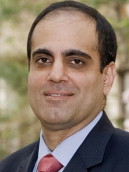
Now, those focused on the management of testicular cancer are in a luxurious position relative to those focused on other solid tumors. Given the exceedingly high cure rates demonstrated over the last 20 years, along with the accumulated body of evidence defining risk factors for progression/recurrence and predictors of response, one can easily envision the possibility of a highly individualized approach to the disease. By utilizing therapy when needed, and withholding or minimizing when possible, we can achieve the delicate balance between cure and avoidance of toxicity for which we all strive. In this way, the management of testis cancer serves as an admirable example that can be followed in other organ sites.
In this issue of Urologic Clinics of North America , edited by Dr Daniel Lin, the invited authors focus upon issues related to refining the craft of testis cancer management. The issue serves as a wonderful example of physicians of many disciplines offering insight on how to further improve the management of the individual patient. Practical issues, related to challenging clinical scenarios, long-term sequelae of successful therapy, and the management of recurrence, are reviewed in a systematic manner with expert opinions on the best approach. For practicing urologists, the issue serves as an update to already deeply engrained concepts. For those in training, it serves to solidify old concepts and to provoke new ideas that may challenge the existing paradigms. I am deeply indebted to Dr Lin and the many esteemed contributors to this issue for their willingness to provide such fantastic content.
Stay updated, free articles. Join our Telegram channel

Full access? Get Clinical Tree



